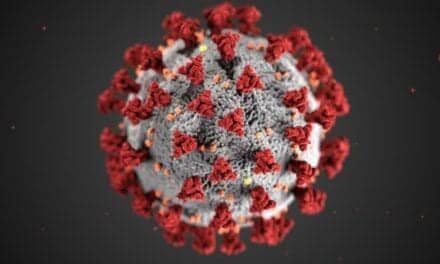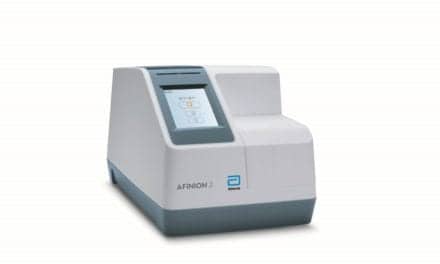A sector startup takes on a widespread lab challenge
Interview by John Conroy
For more than a quarter century, clinical laboratories have been using the ‘free-capture’ biotin-streptavidin assay method for detecting key biomarkers in order to diagnose a variety of health conditions. During that same period the widespread use of dietary supplements, multivitamins, and skincare products has increasingly led to incorrect lab test results because the biotin in these and other products can lead to high levels of the B complex vitamin in patients’ blood samples.
In November 2017, FDA alerted the public, healthcare providers, lab personnel, and test developers that biotin has the potential to interfere with certain test results. The agency warned that such biotin interference can lead to falsely high or falsely low readings, resulting in inappropriate diagnosis and treatment, and risking patient safety.
While FDA is continuing to work with stakeholders to better understand biotin interference, lab product developers have started to address the problem. Veravas, a startup based in Charleston, SC, launched in 2019 with the self-appointed mission of improving the standards for clarity in diagnostics. In August, the company unveiled its initial line of products for the detection and management of biotin interference in lab tests.
To oversee its entry into the clinical lab market, Veravas turned to 45-year industry veteran Carroll E. Streetman Jr as the company’s new CEO. Streetman formerly served as president of in vitro diagnostics developer and manufacturer DiaSorin, and he has held a number of other healthcare executive positions.
In this interview with CLP, Streetman discusses the competitive business landscape, Veravas’s initial products, the challenges facing a diagnostic startup, and related issues.
CLP: How much competition is there in this space?
Carroll E. Streetman Jr: Although the need to address biotin interference has been discussed within the industry for several years, Veravas is the first to market with a ready-to-use solution. Most proposed solutions are still 2 to 3 years away from benefiting sample testing. VeraTest Biotin can detect biotin levels greater than 15 ng/mL in 5 minutes, and VeraPrep Biotin is a simple way to remove biotin interference in less than 15 minutes.
CLP: Is the Veravas portfolio unique or is it an improvement on existing technology using nanomagnetic particles to detect and isolate biotin in lab assays?
Streetman: The Veravas biotin portfolio is truly unique. VeraTest Biotin detects whether biotin is present at 15 ng/mL or greater. There are no competing products for this. VeraPrep Biotin is used to pretreat serum or plasma samples prior to analysis. The original sample result can then be compared to the VeraPrep Biotin pretreated sample result to see if biotin interference is present. A third product, VeraBind Biotin, enables assay developers to increase the biotin interference thresholds of their assays.
CLP: If the Veravas products are used, will patients and doctors no longer have to worry about the biotin levels in blood samples sent to labs?
Streetman: Our current products are for research use only. VeraTest Biotin allows for the rapid detection of biotin interference that may be problematic in some immunoassays. VeraPrep Biotin allows for the rapid and simple removal of biotin interference in plasma or serum samples to be tested by immunoassays. Both products are helpful troubleshooting solutions for labs.
CLP: What are some of the general challenges of launching a diagnostic startup? What about a diagnostic startup in this biotin space?
Streetman: When launching a startup company in the diagnostic space, it is critical to assemble the best possible team of seasoned professionals to help achieve the company’s goals. It is very important for the company to have a strong understanding of diagnostics, a grasp of the pertinent regulatory and quality issues, experience with distribution channels, and an ability to secure the financial backing needed during the company’s early stages. With respect to biotin, we are blessed with a product line that works by identifying and mitigating the biotin interference found in many commonly performed diagnostic tests on various platforms. Our company’s debut at the 2019 meeting of the American Association for Clinical Chemistry was great timing, as biotin interference was a significant discussion topic throughout the week.
CLP: How hard was it to find an alternative to streptavidin?
Streetman: This is a great example of how we leveraged our executive team’s thought-leader and academic relationships to identify, source, and license a truly novel anti-biotin monoclonal antibody, which was developed by Jian-Ping Jin, MD, PhD, professor and chair of physiology at Wayne State University. The antibody can replace streptavidin-based reagents, and avoids the possibility of biotin interference up to 3,500 ng/mL.
VeraBind Biotin mitigates the risks and concerns of free biotin interference in patients taking over-the-counter biotin supplements or high doses of biotin therapeutically. It enables assay developers to continue benefitting from the proven anti-biotin delayed capture assay format for improved assay kinetics, precision, and sensitivity, while preserving faster turnaround times.
CLP: Veravas’ products are currently available for research use only. When will they be ready for commercial use in diagnostic applications?
Streetman: The VeraTest, VeraPrep, and VeraBind Biotin products are currently available for research use only. Initial customers for RUO applications include academic institutions, CLIA-certified laboratories, diagnostic companies, and research facilities. We also plan to work actively with FDA on the regulatory process for these product solutions.
CLP: Is screening for cardiac troponin the most crucial concern that the new products will address? What about sepsis or other life-critical problems?
Streetman: Biotin interference removal is important for all lab tests susceptible to biotin interference where rapid decisions are being made. Another area where biotin interference removal is important is in infectious disease testing. Both false-negative and false-positive results due to biotin interference can have serious consequences.
CLP: What did you learn running DiaSorin, for example, that will help in making Veravas successful?
Streetman: An important takeaway for me was to surround myself with the best talent to help guide strategy development as well as the execution of a solid business plan. Another key to success within the industry is leveraging existing relationships with other diagnostic companies to establish collaborative opportunities that help all involved in a development project. This B2B model works well when participants from both companies see a common goal and success point that is achievable and rewarding for all parties involved.
Knowledge of various distribution channels and the abilities to build and develop a customer-focused sales team and to manage international business opportunities also played key roles in my development and success at DiaSorin. Finally, keeping an eye focused on the long-term goals—and overcoming short-term setbacks that many startups experience—promotes a ‘can-do’ culture within the organization.
CLP: If the new biotin products do well, what’s the next step for Veravas in the diagnostics space?
Streetman: Veravas is developing additional sample preparation products that offer multiplexing capabilities for several of the most problematic factors that can interfere with immunoassays. Our unique nanomagnetic technology can also be applied toward development of novel tests for complex diseases. These diseases often have biomarkers in low concentrations and require measurement of multiple factors within a single sample.
We are currently working collaboratively with industry leaders and research institutions to quickly bring our technology to market.
CLP: Veravas has $2 million in seed funds. How receptive is the investor community to Veravas going forward?
Streetman: We are poised to launch our third round of capital funding, and we are targeting a $7 million to $10 million cap on this round. We successfully raised $2.5 million in our first two rounds, and these funds came almost exclusively from angel investors. The third round is targeted at both angels and venture capital firms. Interest to date has been very positive since we commercialized our Veravas biotin portfolio in August, and initial discussions with venture capital firms are currently ongoing.
John Conroy is a freelance writer based in Los Angeles.
Featured image: Supplement Facts. Photo © Ekaterina79 courtesy Dreamstime (ID 106582992).







